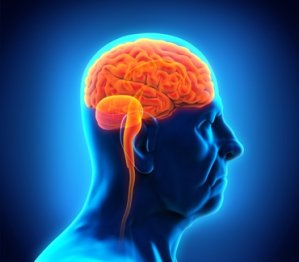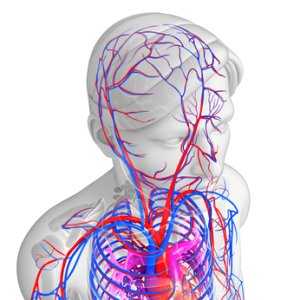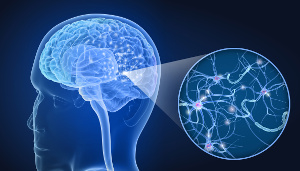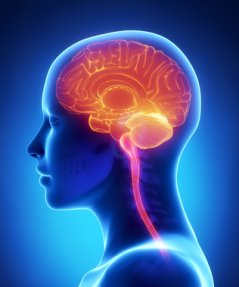afterLoad (456.47KB) (2.03ms)
afterInitialise (1.28MB) (30.62ms)
afterRoute (869.87KB) (10.22ms)
beforeRenderComponent com_tags (20.38KB) (381μs)
afterRenderComponent com_tags (1.46MB) (58.11ms)
afterDispatch (27.09KB) (2.71ms)
beforeRenderRawModule mod_articles_category (READ MORE...) (388.74KB) (16.59ms)
Before Access::preloadComponents (all components) (56.7KB) (2.67ms)
After Access::preloadComponents (all components) (103.05KB) (1.54ms)
Before Access::getAssetRules (id:8 name:com_content) (840B) (25μs)
After Access::getAssetRules (id:8 name:com_content) (7.05KB) (48μs)
afterRenderRawModule mod_articles_category (READ MORE...) (5.08KB) (134ms)
beforeRenderRawModule mod_tags_popular (Search) (4.81KB) (41μs)
afterRenderRawModule mod_tags_popular (Search) (3.15KB) (46.5ms)
beforeRenderRawModule mod_custom (Remember to download Heart Healthy Seniors) (816B) (38μs)
afterRenderRawModule mod_custom (Remember to download Heart Healthy Seniors) (4.86KB) (857μs)
beforeRenderRawModule mod_custom (Get additionel and more detailed knowledge ) (752B) (22μs)
afterRenderRawModule mod_custom (Get additionel and more detailed knowledge ) (1.67KB) (33μs)
beforeRenderRawModule mod_custom (BOOST YOUR IMMUNE DEFENSE) (608B) (12μs)
afterRenderRawModule mod_custom (BOOST YOUR IMMUNE DEFENSE) (928B) (24μs)
beforeRenderRawModule mod_custom (Are you taking supplements) (736B) (11μs)
afterRenderRawModule mod_custom (Are you taking supplements) (1.03KB) (19μs)
beforeRenderRawModule mod_custom (Antiaging) (720B) (9μs)
afterRenderRawModule mod_custom (Antiaging) (1.02KB) (19μs)
beforeRenderRawModule mod_custom (Exercise) (720B) (9μs)
afterRenderRawModule mod_custom (Exercise) (1.02KB) (17μs)
beforeRenderRawModule mod_custom (Check this before you buy a Q10 product) (752B) (9μs)
afterRenderRawModule mod_custom (Check this before you buy a Q10 product) (944B) (19μs)
beforeRenderRawModule mod_custom (Chronic fatigue tied Alan to his bed but Q10 capsules saved him:) (245.53KB) (5.72ms)
afterRenderRawModule mod_custom (Chronic fatigue tied Alan to his bed but Q10 capsules saved him:) (960B) (56μs)
beforeRenderModule mod_custom (Chronic fatigue tied Alan to his bed but Q10 capsules saved him:) (768B) (5μs)
afterRenderModule mod_custom (Chronic fatigue tied Alan to his bed but Q10 capsules saved him:) (1.3KB) (63μs)
beforeRenderRawModule mod_custom (Cholesterol-lowering without side effects:) (368B) (13μs)
afterRenderRawModule mod_custom (Cholesterol-lowering without side effects:) (2.19KB) (23μs)
beforeRenderModule mod_custom (Cholesterol-lowering without side effects:) (752B) (2μs)
afterRenderModule mod_custom (Cholesterol-lowering without side effects:) (1.28KB) (29μs)
beforeRenderModule mod_articles_category (READ MORE...) (21.32KB) (1.52ms)
afterRenderModule mod_articles_category (READ MORE...) (1.25KB) (83μs)
beforeRenderModule mod_tags_popular (Search) (5.17KB) (16μs)
afterRenderModule mod_tags_popular (Search) (1.27KB) (27μs)
beforeRenderModule mod_custom (Remember to download Heart Healthy Seniors) (1.17KB) (12μs)
afterRenderModule mod_custom (Remember to download Heart Healthy Seniors) (1.3KB) (22μs)
beforeRenderModule mod_custom (Get additionel and more detailed knowledge ) (368B) (10μs)
afterRenderModule mod_custom (Get additionel and more detailed knowledge ) (1.3KB) (22μs)
beforeRenderModule mod_custom (BOOST YOUR IMMUNE DEFENSE) (224B) (9μs)
afterRenderModule mod_custom (BOOST YOUR IMMUNE DEFENSE) (1.28KB) (20μs)
beforeRenderModule mod_custom (Are you taking supplements) (352B) (9μs)
afterRenderModule mod_custom (Are you taking supplements) (1.28KB) (20μs)
beforeRenderModule mod_custom (Antiaging) (336B) (9μs)
afterRenderModule mod_custom (Antiaging) (1.27KB) (20μs)
beforeRenderModule mod_custom (Exercise) (336B) (9μs)
afterRenderModule mod_custom (Exercise) (1.25KB) (19μs)
beforeRenderModule mod_custom (Check this before you buy a Q10 product) (352B) (10μs)
afterRenderModule mod_custom (Check this before you buy a Q10 product) (1.28KB) (19μs)
beforeRenderRawModule mod_menu (Main menu-US) (20.94KB) (1.63ms)
afterRenderRawModule mod_menu (Main menu-US) (152.66KB) (3.07ms)
beforeRenderModule mod_menu (Main menu-US) (720B) (7μs)
afterRenderModule mod_menu (Main menu-US) (4.36KB) (90μs)
beforeRenderRawModule mod_languages (Sprogskift) (3.44KB) (20μs)
afterRenderRawModule mod_languages (Sprogskift) (26.8KB) (2.01ms)
beforeRenderModule mod_languages (Sprogskift) (720B) (9μs)
afterRenderModule mod_languages (Sprogskift) (5.31KB) (30μs)
beforeRenderRawModule mod_finder () (6.34KB) (15μs)
afterRenderRawModule mod_finder () (214.16KB) (2.6ms)
beforeRenderModule mod_finder () (704B) (7μs)
afterRenderModule mod_finder () (5.79KB) (44μs)
beforeRenderRawModule mod_custom () (6.62KB) (158μs)
afterRenderRawModule mod_custom () (22.66KB) (1.16ms)
beforeRenderModule mod_custom () (704B) (8μs)
afterRenderModule mod_custom () (1.23KB) (62μs)
beforeRenderRawModule mod_menu (Main menu-US) (5.07KB) (132μs)
afterRenderRawModule mod_menu (Main menu-US) (5.8KB) (754μs)
beforeRenderModule mod_menu (Main menu-US) (720B) (3μs)
afterRenderModule mod_menu (Main menu-US) (1.25KB) (51μs)
beforeRenderRawModule mod_languages (Sprogskift Mobil) (912B) (17μs)
afterRenderRawModule mod_languages (Sprogskift Mobil) (3.89KB) (740μs)
beforeRenderModule mod_languages (Sprogskift Mobil) (720B) (4μs)
afterRenderModule mod_languages (Sprogskift Mobil) (1.27KB) (32μs)
beforeRenderRawModule mod_finder () (2.3KB) (10μs)
afterRenderRawModule mod_finder () (6.29KB) (1.9ms)
beforeRenderModule mod_finder () (704B) (8μs)
afterRenderModule mod_finder () (1.23KB) (66μs)
beforeRenderRawModule mod_custom () (8.66KB) (223μs)
afterRenderRawModule mod_custom () (904B) (177μs)
beforeRenderModule mod_custom () (704B) (3μs)
afterRenderModule mod_custom () (2.43KB) (27μs)
beforeRenderRawModule mod_custom () (688B) (83μs)
afterRenderRawModule mod_custom () (896B) (98μs)
beforeRenderModule mod_custom () (704B) (2μs)
afterRenderModule mod_custom () (2.71KB) (23μs)
afterRender (273.62KB) (9.82ms)
| 1 x afterRenderRawModule mod_articles_category (READ MORE...) (5.08KB) (39.43%) | 134.48ms |
| 1 x afterRenderComponent com_tags (1.46MB) (17.04%) | 58.11ms |
| 1 x afterRenderRawModule mod_tags_popular (Search) (3.15KB) (13.63%) | 46.50ms |
| 1 x afterInitialise (1.28MB) (8.98%) | 30.62ms |
| 1 x beforeRenderRawModule mod_articles_category (READ MORE...) (388.74KB) (4.86%) | 16.59ms |
| 1 x afterRoute (869.87KB) (3%) | 10.22ms |
| 1 x afterRender (273.62KB) (2.88%) | 9.82ms |
| 1 x beforeRenderRawModule mod_custom (Chronic fatigue tied Alan to his bed but Q10 capsules saved him:) (245.53KB) (1.68%) | 5.72ms |
| 1 x afterRenderRawModule mod_menu (Main menu-US) (152.66KB) (0.9%) | 3.07ms |
| 1 x afterDispatch (27.09KB) (0.8%) | 2.71ms |
| 1 x Before Access::preloadComponents (all components) (56.7KB) (0.78%) | 2.67ms |
| 1 x afterRenderRawModule mod_finder () (214.16KB) (0.76%) | 2.60ms |
| 1 x afterLoad (456.47KB) (0.59%) | 2.03ms |
| 1 x afterRenderRawModule mod_languages (Sprogskift) (26.8KB) (0.59%) | 2.01ms |
| 1 x afterRenderRawModule mod_finder () (6.29KB) (0.56%) | 1.90ms |
| 1 x beforeRenderRawModule mod_menu (Main menu-US) (20.94KB) (0.48%) | 1.63ms |
| 1 x After Access::preloadComponents (all components) (103.05KB) (0.45%) | 1.54ms |
| 1 x beforeRenderModule mod_articles_category (READ MORE...) (21.32KB) (0.45%) | 1.52ms |
| 1 x afterRenderRawModule mod_custom () (22.66KB) (0.34%) | 1.16ms |
| 1 x afterRenderRawModule mod_custom (Remember to download Heart Healthy Seniors) (4.86KB) (0.25%) | 857μs |
| 1 x afterRenderRawModule mod_menu (Main menu-US) (5.8KB) (0.22%) | 754μs |
| 1 x afterRenderRawModule mod_languages (Sprogskift Mobil) (3.89KB) (0.22%) | 740μs |
| 1 x beforeRenderComponent com_tags (20.38KB) (0.11%) | 381μs |
| 1 x beforeRenderRawModule mod_custom () (8.66KB) (0.07%) | 223μs |
| 1 x afterRenderRawModule mod_custom () (904B) (0.05%) | 177μs |
| 1 x beforeRenderRawModule mod_custom () (6.62KB) (0.05%) | 158μs |
| 1 x beforeRenderRawModule mod_menu (Main menu-US) (5.07KB) (0.04%) | 132μs |
| 1 x afterRenderRawModule mod_custom () (896B) (0.03%) | 98μs |
| 1 x afterRenderModule mod_menu (Main menu-US) (4.36KB) (0.03%) | 90μs |
| 1 x afterRenderModule mod_articles_category (READ MORE...) (1.25KB) (0.02%) | 83μs |
| 1 x beforeRenderRawModule mod_custom () (688B) (0.02%) | 83μs |
| 1 x afterRenderModule mod_finder () (1.23KB) (0.02%) | 66μs |
| 1 x afterRenderModule mod_custom (Chronic fatigue tied Alan to his bed but Q10 capsules saved him:) (1.3KB) (0.02%) | 63μs |
| 1 x afterRenderModule mod_custom () (1.23KB) (0.02%) | 62μs |
| 1 x afterRenderRawModule mod_custom (Chronic fatigue tied Alan to his bed but Q10 capsules saved him:) (960B) (0.02%) | 56μs |
| 1 x afterRenderModule mod_menu (Main menu-US) (1.25KB) (0.01%) | 51μs |
| 1 x After Access::getAssetRules (id:8 name:com_content) (7.05KB) (0.01%) | 48μs |
| 1 x afterRenderModule mod_finder () (5.79KB) (0.01%) | 44μs |
| 1 x beforeRenderRawModule mod_tags_popular (Search) (4.81KB) (0.01%) | 41μs |
| 1 x beforeRenderRawModule mod_custom (Remember to download Heart Healthy Seniors) (816B) (0.01%) | 38μs |
| 1 x afterRenderRawModule mod_custom (Get additionel and more detailed knowledge ) (1.67KB) (0.01%) | 33μs |
| 1 x afterRenderModule mod_languages (Sprogskift Mobil) (1.27KB) (0.01%) | 32μs |
| 1 x afterRenderModule mod_languages (Sprogskift) (5.31KB) (0.01%) | 30μs |
| 1 x afterRenderModule mod_custom (Cholesterol-lowering without side effects:) (1.28KB) (0.01%) | 29μs |
| 1 x afterRenderModule mod_tags_popular (Search) (1.27KB) (0.01%) | 27μs |
| 1 x afterRenderModule mod_custom () (2.43KB) (0.01%) | 27μs |
| 1 x Before Access::getAssetRules (id:8 name:com_content) (840B) (0.01%) | 25μs |
| 1 x afterRenderRawModule mod_custom (BOOST YOUR IMMUNE DEFENSE) (928B) (0.01%) | 24μs |
| 1 x afterRenderRawModule mod_custom (Cholesterol-lowering without side effects:) (2.19KB) (0.01%) | 23μs |
| 1 x afterRenderModule mod_custom () (2.71KB) (0.01%) | 23μs |
| 1 x afterRenderModule mod_custom (Remember to download Heart Healthy Seniors) (1.3KB) (0.01%) | 22μs |
| 1 x beforeRenderRawModule mod_custom (Get additionel and more detailed knowledge ) (752B) (0.01%) | 22μs |
| 1 x afterRenderModule mod_custom (Get additionel and more detailed knowledge ) (1.3KB) (0.01%) | 22μs |
| 1 x afterRenderModule mod_custom (Are you taking supplements) (1.28KB) (0.01%) | 20μs |
| 1 x afterRenderModule mod_custom (Antiaging) (1.27KB) (0.01%) | 20μs |
| 1 x beforeRenderRawModule mod_languages (Sprogskift) (3.44KB) (0.01%) | 20μs |
| 1 x afterRenderModule mod_custom (BOOST YOUR IMMUNE DEFENSE) (1.28KB) (0.01%) | 20μs |
| 1 x afterRenderRawModule mod_custom (Are you taking supplements) (1.03KB) (0.01%) | 19μs |
| 1 x afterRenderRawModule mod_custom (Antiaging) (1.02KB) (0.01%) | 19μs |
| 1 x afterRenderModule mod_custom (Exercise) (1.25KB) (0.01%) | 19μs |
| 1 x afterRenderModule mod_custom (Check this before you buy a Q10 product) (1.28KB) (0.01%) | 19μs |
| 1 x afterRenderRawModule mod_custom (Check this before you buy a Q10 product) (944B) (0.01%) | 19μs |
| 1 x beforeRenderRawModule mod_languages (Sprogskift Mobil) (912B) (0.01%) | 17μs |
| 1 x afterRenderRawModule mod_custom (Exercise) (1.02KB) (0%) | 17μs |
| 1 x beforeRenderModule mod_tags_popular (Search) (5.17KB) (0%) | 16μs |
| 2 x beforeRenderModule mod_finder () (704B) (0%) | 15μs |
| 1 x beforeRenderRawModule mod_finder () (6.34KB) (0%) | 15μs |
| 1 x beforeRenderRawModule mod_custom (Cholesterol-lowering without side effects:) (368B) (0%) | 13μs |
| 3 x beforeRenderModule mod_custom () (704B) (0%) | 13μs |
| 1 x beforeRenderRawModule mod_custom (BOOST YOUR IMMUNE DEFENSE) (608B) (0%) | 12μs |
| 1 x beforeRenderModule mod_custom (Remember to download Heart Healthy Seniors) (1.17KB) (0%) | 12μs |
| 1 x beforeRenderRawModule mod_custom (Are you taking supplements) (736B) (0%) | 11μs |
| 1 x beforeRenderModule mod_custom (Get additionel and more detailed knowledge ) (368B) (0%) | 10μs |
| 1 x beforeRenderModule mod_custom (Check this before you buy a Q10 product) (352B) (0%) | 10μs |
| 2 x beforeRenderModule mod_menu (Main menu-US) (720B) (0%) | 10μs |
| 1 x beforeRenderRawModule mod_finder () (2.3KB) (0%) | 10μs |
| 1 x beforeRenderRawModule mod_custom (Exercise) (720B) (0%) | 9μs |
| 1 x beforeRenderRawModule mod_custom (Check this before you buy a Q10 product) (752B) (0%) | 9μs |
| 1 x beforeRenderModule mod_custom (BOOST YOUR IMMUNE DEFENSE) (224B) (0%) | 9μs |
| 1 x beforeRenderModule mod_custom (Are you taking supplements) (352B) (0%) | 9μs |
| 1 x beforeRenderModule mod_custom (Antiaging) (336B) (0%) | 9μs |
| 1 x beforeRenderRawModule mod_custom (Antiaging) (720B) (0%) | 9μs |
| 1 x beforeRenderModule mod_custom (Exercise) (336B) (0%) | 9μs |
| 1 x beforeRenderModule mod_languages (Sprogskift) (720B) (0%) | 9μs |
| 1 x beforeRenderModule mod_custom (Chronic fatigue tied Alan to his bed but Q10 capsules saved him:) (768B) (0%) | 5μs |
| 1 x beforeRenderModule mod_languages (Sprogskift Mobil) (720B) (0%) | 4μs |
| 1 x beforeRenderModule mod_custom (Cholesterol-lowering without side effects:) (752B) (0%) | 2μs |
 The number of older people is constantly increasing, and more and more people suffer from Alzheimer’s disease and other types of dementia. Apparently, seniors who take a daily multivitamin can improve their memory and slow down their cognitive decline, according to a meta-analysis that is published in Journal of Clinical Nutrition. Older people generally have increased need for certain vitamins and minerals because of poor nutrient absorption in the digestive system, impaired enzyme functions, oxidative stress, and regular use of medical drugs that can interact with the nutrients. But how do different vitamins and minerals affect brain health?
The number of older people is constantly increasing, and more and more people suffer from Alzheimer’s disease and other types of dementia. Apparently, seniors who take a daily multivitamin can improve their memory and slow down their cognitive decline, according to a meta-analysis that is published in Journal of Clinical Nutrition. Older people generally have increased need for certain vitamins and minerals because of poor nutrient absorption in the digestive system, impaired enzyme functions, oxidative stress, and regular use of medical drugs that can interact with the nutrients. But how do different vitamins and minerals affect brain health?







 Studies show that large quantities of B vitamins are able to slow mild cognitive impairment, which is an early stage of dementia and Alzheimer's disease. A more recent study suggests, however, that B vitamins are not effective, unless the body is properly supplied with the omega-3 fatty acids that are found in fish oil.
Studies show that large quantities of B vitamins are able to slow mild cognitive impairment, which is an early stage of dementia and Alzheimer's disease. A more recent study suggests, however, that B vitamins are not effective, unless the body is properly supplied with the omega-3 fatty acids that are found in fish oil. Vitamin B12 is important for the development of the brain, and young children with low levels of the nutrient are challenged when it comes to solving cognitive tests such as puzzles, letter recognition, and the ability to understand the feelings of other children. Vitamin B12-deficient children are therefore more vulnerable and generally have a more difficult start in life. Researchers have demonstrated this in a study that is published in the American Journal of Clinical Nutrition.
Vitamin B12 is important for the development of the brain, and young children with low levels of the nutrient are challenged when it comes to solving cognitive tests such as puzzles, letter recognition, and the ability to understand the feelings of other children. Vitamin B12-deficient children are therefore more vulnerable and generally have a more difficult start in life. Researchers have demonstrated this in a study that is published in the American Journal of Clinical Nutrition. The brain normally only uses blood sugar in the form of glucose. However, people suffering from insulin resistance have impaired cellular uptake of blood sugar, causing an energy shortage of the brain. According to a recent Israeli study, insulin resistance may speed up impairment of the cognitive functions that include the ability to think, speak, and solve problems. Because insulin resistance is an early stage of type-2 diabetes that spreads like an epidemic, there is every reason in the world to start preventing or treating this condition. A few dietary adjustments combined with a blood sugar-regulating trace element may do the trick.
The brain normally only uses blood sugar in the form of glucose. However, people suffering from insulin resistance have impaired cellular uptake of blood sugar, causing an energy shortage of the brain. According to a recent Israeli study, insulin resistance may speed up impairment of the cognitive functions that include the ability to think, speak, and solve problems. Because insulin resistance is an early stage of type-2 diabetes that spreads like an epidemic, there is every reason in the world to start preventing or treating this condition. A few dietary adjustments combined with a blood sugar-regulating trace element may do the trick.
 Brain cells (neurons) contain comparatively large concentrations of vitamin C, a nutrient that helps us maintain a healthy nervous system in a number of different ways. Scientists have discovered that lack of vitamin C can affect the brain’s neural signaling. Consequently, a vitamin C deficiency can impair memory and other cognitive skills in seniors. This was demonstrated in a study from Flinders University in Australia. Mild cognitive impairment is widespread among older people and represents an early stage of dementia so it is important to get plenty of vitamin C every day throughout life.
Brain cells (neurons) contain comparatively large concentrations of vitamin C, a nutrient that helps us maintain a healthy nervous system in a number of different ways. Scientists have discovered that lack of vitamin C can affect the brain’s neural signaling. Consequently, a vitamin C deficiency can impair memory and other cognitive skills in seniors. This was demonstrated in a study from Flinders University in Australia. Mild cognitive impairment is widespread among older people and represents an early stage of dementia so it is important to get plenty of vitamin C every day throughout life. People with elevated levels of omega-3 fatty acids in their blood have better circulation in those parts of the brain that handle learning, language, memory, and other cognitive functions, according to a recent report that is published in the Journal of Alzheimer’s Disease. The scientists also observed a link between blood levels of omega-3 and the rate of dementia and depression. They call their study an important discovery that supports earlier studies, which have shown how simple dietary adjustments such as increasing your intake of oily fish or fish oil supplements help preserve mental skills and a healthy mind.
People with elevated levels of omega-3 fatty acids in their blood have better circulation in those parts of the brain that handle learning, language, memory, and other cognitive functions, according to a recent report that is published in the Journal of Alzheimer’s Disease. The scientists also observed a link between blood levels of omega-3 and the rate of dementia and depression. They call their study an important discovery that supports earlier studies, which have shown how simple dietary adjustments such as increasing your intake of oily fish or fish oil supplements help preserve mental skills and a healthy mind. It’s commonly known that physical activity boosts the brain’s ability to form new brain cells – or neurons. Still, the underlying mechanisms have been a mystery to science. A team of Australian scientists, however, has recently discovered that, during exercise, mice produce a selenium-containing protein that helps the brain synthesize new brain cells. The scientists consider this to be a rather fantastic study, and it is assumed that selenium therapy may be used in the future to prevent and treat cognitive decline in people who are unable to carry out physical exercise or in those likely to be selenium-deficient. This is particularly relevant for Alzheimer’s patients and people who have suffered a stroke. It should be added that it can be quite a challenge to get enough selenium from an otherwise balanced diet in our part of the world.
It’s commonly known that physical activity boosts the brain’s ability to form new brain cells – or neurons. Still, the underlying mechanisms have been a mystery to science. A team of Australian scientists, however, has recently discovered that, during exercise, mice produce a selenium-containing protein that helps the brain synthesize new brain cells. The scientists consider this to be a rather fantastic study, and it is assumed that selenium therapy may be used in the future to prevent and treat cognitive decline in people who are unable to carry out physical exercise or in those likely to be selenium-deficient. This is particularly relevant for Alzheimer’s patients and people who have suffered a stroke. It should be added that it can be quite a challenge to get enough selenium from an otherwise balanced diet in our part of the world. ut very interesting study of 33 elderly people suggest that intake of omega-3 fatty acids may slow a biological key process in the body's cells associated with the aging process. If the result is confirmed, it could make fish oil a big hit in anti-aging.
ut very interesting study of 33 elderly people suggest that intake of omega-3 fatty acids may slow a biological key process in the body's cells associated with the aging process. If the result is confirmed, it could make fish oil a big hit in anti-aging. A high dose of vitamin E daily has in a double - blind, placebo-controlled study shown to reduce the progression of Alzheimer's disease by 19% compared with placebo in elderly people who had the disease in mild to moderate degree.
A high dose of vitamin E daily has in a double - blind, placebo-controlled study shown to reduce the progression of Alzheimer's disease by 19% compared with placebo in elderly people who had the disease in mild to moderate degree. Vitamin C is extremely important for the brain’s blood vessels, nerve cells, neurotransmitters, and connective tissue. An estimated 10 percent of the adult population is vitamin C deficient without specific symptoms. According to a scientific article in the Danish journal Aktuel Videnskab, vitamin C deficiency during pregnancy may harm brain development in the fetus.
Vitamin C is extremely important for the brain’s blood vessels, nerve cells, neurotransmitters, and connective tissue. An estimated 10 percent of the adult population is vitamin C deficient without specific symptoms. According to a scientific article in the Danish journal Aktuel Videnskab, vitamin C deficiency during pregnancy may harm brain development in the fetus. "After about one week of taking the Q10 supplement I could feel a huge difference," says 23-year old Alan Piccini, who has been suffering from extreme fatigue and muscle aches ever since he was a child.
"After about one week of taking the Q10 supplement I could feel a huge difference," says 23-year old Alan Piccini, who has been suffering from extreme fatigue and muscle aches ever since he was a child. “Taking capsules with co-enzyme Q10 has freed me of the severe side effects of my cholesterol lowering medicine,” Mrs Franken explains.
“Taking capsules with co-enzyme Q10 has freed me of the severe side effects of my cholesterol lowering medicine,” Mrs Franken explains.